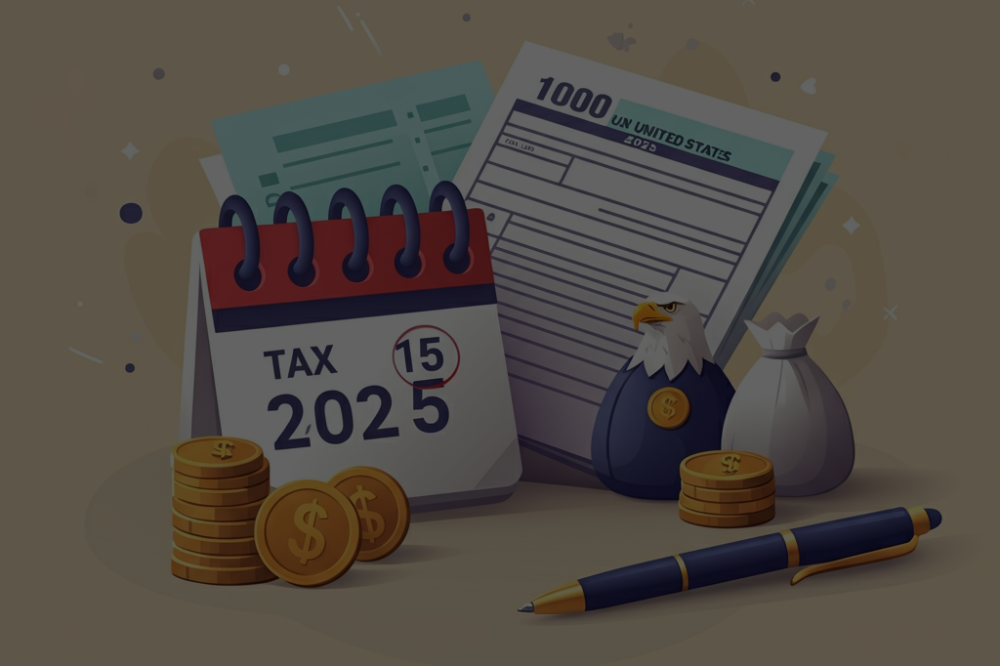Tax Day is just around the corner, and staying informed about deadlines, requirements, and helpful tips can save you both time and stress. Whether you’re a seasoned filer or tackling taxes for the first time, this guide will ensure you’re prepared for Tax Day 2025.
We’ve covered everything from key deadlines to filing extensions and common mistakes to avoid. Read on to ensure your tax filing experience is as smooth as possible.
When is Tax Day in 2025?
The federal tax filing deadline for the 2024 tax year is Tuesday, April 15, 2025. Here’s what you need to know about filing on time, whether electronically or by mail:
- E-filers must submit their returns by 11:59 p.m. local time.
- Paper filers need to ensure their return is postmarked by April 15, with sufficient postage and the correct address.
If Tax Day feels overwhelming, consider starting early to avoid the last-minute rush.
Filing for an Extension
If you’re unable to meet the April 15 deadline, you can request a filing extension using Form 4868. An extension gives you until October 15, 2025, to complete your return. But keep this in mind:
- The extension applies to your filing deadline, not your payment deadline.
- Taxes owed must still be paid by April 15 to avoid interest and penalties.
Missed Deadlines and Penalties
Missed the April 15 deadline? Here’s what could happen:
- If you owe taxes, penalties and interest will accrue until your balance is paid in full.
- If you’re due a refund, there’s no penalty for filing late; however, it’s best to file as soon as possible to get your money back.
State Tax Deadlines Can Vary
While most states align their filing deadlines with the federal date, a few are exceptions. For example:
- Hawaii filers have until April 21, 2025.
- Virginia residents get an extension until May 1, 2025.
Nine states, including Florida and Texas, don’t collect state income tax. Always check with your state’s revenue department to confirm deadlines specific to your location.
What to Do If You Need More Time
Can’t make the deadline? Don’t panic. Here’s a step-by-step guide:
- File for an Extension. Use IRS Form 4868 to extend your filing deadline to October 15, 2025.
- Pay What You Can. Even if you file for an extension, estimate and pay your tax liability by April 15 to avoid additional penalties.
- Set Up a Payment Plan. If you can’t pay the full amount, the IRS offers installment plans to help spread out the cost.
Key Deadlines for Estimated Taxes
Are you self-employed or receive income without tax withholding? If so, estimated tax payments deadlines are crucial for you:
- January 15, 2025 – Fourth quarter 2024 payments due.
- April 15, 2025 – First quarter 2025 payments due.
- June 16, 2025 – Second quarter 2025 payments due.
- September 15, 2025 – Third quarter 2025 payments due.
Avoid penalties by staying on top of these deadlines if you fall under the category of taxpayers required to make estimated payments.
Filing Tips to Make Tax Day Easier
Make April 15 less stressful with these helpful suggestions:
- Organize Your Documents Early. Gather W-2 forms, 1099s, and any deduction-related paperwork ahead of time.
- Use Tax Software. Platforms like TurboTax and H&R Block simplify the process, helping you avoid costly errors.
- Double-Check for Deductions & Credits. Common deductions include student loan interest and medical expenses. Research available credits, such as the Earned Income Tax Credit (EITC), for additional savings.
- Choose Direct Deposit for Refunds. E-filing with direct deposit ensures the fastest way to receive your refund, often within 21 days.
Special Circumstances for Certain Taxpayers
Some taxpayers may qualify for additional filing time, such as:
- Americans Abroad: U.S. citizens living abroad have until June 16, 2025, to file their federal tax returns.
- Disaster-Affected Areas: Taxpayers impacted by natural disasters in designated areas, including parts of Alabama and California, may have extended deadlines. For example, residents of Los Angeles County have until October 15, 2025, to file.
Check the IRS website for specific details if you believe you qualify for an extension.
Common Mistakes to Avoid
Even seasoned taxpayers can slip up. Avoid these frequent errors:
- Incorrect Personal Information. Double-check your name, Social Security number, and bank account details.
- Missing Deadlines. Mark all relevant dates on your calendar to stay on track.
- Failing to Report All Income. Side gigs, freelance work, or investment earnings? Make sure they’re included.
- Not Keeping Records. Retain copies of your return and supporting documents for at least three years for audit purposes.
Final Thoughts and Next Steps
Tax Day 2025 doesn’t have to be stressful. By preparing early, organizing your documents, and leveraging tools like tax software, you can make the process smoother and avoid costly mistakes.
If you need more time or require assistance, the IRS offers resources—including installment plans and guidance for extensions—to make filing your taxes manageable.
Make your 2025 tax filing stress-free and organized by starting today. Gather your paperwork, review key deadlines, and ensure you’re prepared to meet your obligations.

